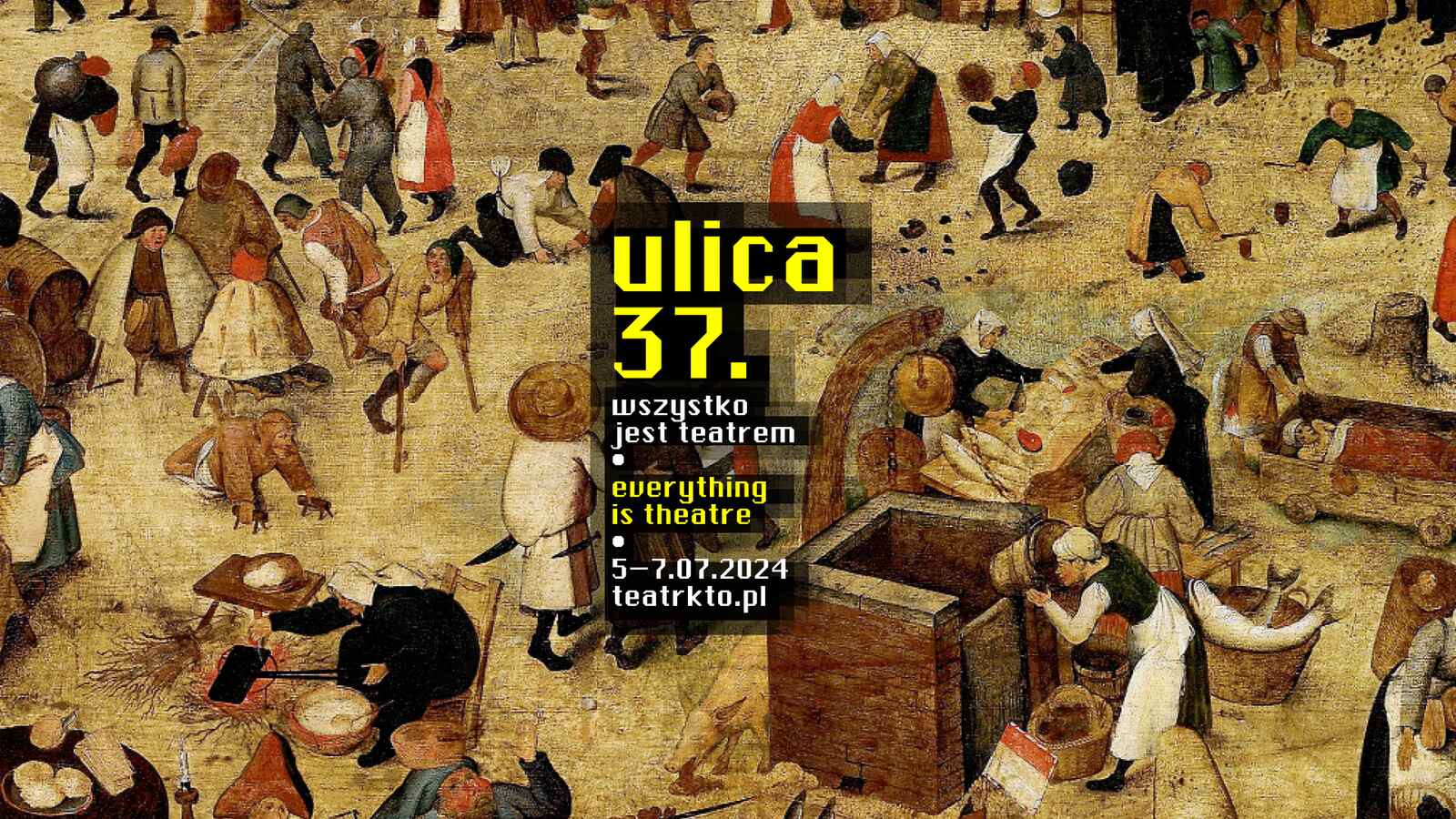37. ULICA Festival

EVERYTHING IS THEATRE
Considering the immense staging power of Pieter Breugel, whose painting „The Fight Between Carnival and Lent” serves as the poster of the 37th ULICA festival, Karel van Mander said: „During his crossing of the Alps, Bruegel swallowed mountains and rocks and spat them out again onto canvas and panels upon returning home.” This was the fate not only of mountains and rocks. Look at the said poster or the painting „Children’s Games”. An ordinary man in everyday trousers, a headscarf and a humble shirt, an object, a gesture or a grimace – whatever passed through Bruegel’s eyes, at the end of the journey, processed in the imagination, dripped from the brush as an actor in a role, a prop and a scenery, as a part of a populous staging, frozen in the painting as if on a stage, which the town square or the square in the middle of the village became under the artist’s brush.
If you were to look at the KTO Theatre’s street festivals from a drone perspective, the view would resemble Bruegel’s works. Here is the monstrous scene of the Main Market Square of Krakow, aand here are the decorations: the Cloth Hall, tenement houses, the Town Hall Tower, the statue of Adam Mickiewicz, the Church of St. Adalbert. And dense gatherings of people, at several points of the monstrous scene, motionless around the individuals who are frolicking. Someone is walking on stilts, someone is dancing, someone is singing, there is an acrobat on a tightrope, a rubber man and a ventriloquist. There is a funny dwarf with a white face and a red ball on his nose, and a walker who walks up the stairs without stairs, and a juggler, and a hat with a rabbit at the bottom. And there is a guy who kicked another person in the calf and now pretends that it was not him but that bald man with a moustache and a silly smile, who is standing among the onlookers and applauding… That’s it! Who did it? Who is playing and who is not? Where is the illusion, where is the truth? If this year a pale unfortunate man embraces a tree, just as he did in the previous year, and bangs his head against the tree trunk, crying in despair, because after leaving the liquor store he dropped a plastic bag with a bottle of vodka in it – how will you, a regular street festival frequenter, decide if this is a scene from a show or a scene from a hard life?
There is another question. Why should you settle this at all? What harm does it do to put aside the old rational division: this is an illusion and that is the truth? The poster – a portrait of a colossal frozen performance composed of a swarm of small acts – bears the slogan of this year’s ULICA: „Everything is theatre”. No one has Bruegel’s imagination, that’s clear. But everyone has imagination of some kind. It is enough to wake it up and stop accepting the surrounding world with the benefit of flat obviousness and crude divisions into reality and dream. It may then happen that when you ask a headscarfed woman who sells bagels how much the ones with salt on top cost – Lady Macbeth will answer you from the depths of time: „Two fifty each”. But also, it will not be a mistake if you put a fifty zloty banknote in the paw of the unfortunate thirsty man pale with despair. May he be resurrected, as he dreamed of at dawn, just after his Saharan dry awakening.
Lady Macbeth’s Bagels
Paweł Głowacki
